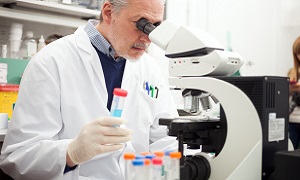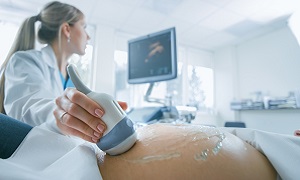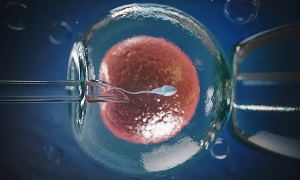Best Doctors in India for Infertility Treatment
Best Hospitals in India for Infertility Treatment
- City: Bengaluru, India
Hospital Highlights:
- Fortis Hospital Bannerghatta, Bengaluru was established in 2006.
- The hospital is a 276 bedded multi-specialty tertiary care facility.
- The hospital specializes in cutting-edge medical technology and dedicated patient care services.
- The hospital is equipped with state-of-the-art technologies like trans-radial angioplasty, trans-abdominal cardiac surgery, and computerized TKR navigation surgery.
- The hospital provides specialty medical services in cardiology, cardiac surgery, orthopedics, neurology, neuro-surgery, GI, and Minimal Access Surgery (MAS).
- City: Chennai, India
Hospital Highlights:
- Fortis Malar was established in 1992 and was formerly known as Malar Hospital.
- The hospital specializes in cutting-edge medical technology and dedicated patient care services.
- The hospital is multi-specialty, tertiary care facility with 180 beds.
- The hospital offers comprehensive medical care in specialties such as cardiology, cardio-thoracic surgery, neurology, neurosurgery, orthopedics, nephrology, gynecology, gastroenterology, urology, pediatrics, and diabetes.
- City: New Delhi, India
Hospital Highlights:
- Established in 1996, Pushpawati Singhania Research Institute is one of the top hospitals in the NCR region, as well as one of the top facilities in India for gastroenterology. The hospital is one of South Asia’s first institutes in medical and surgical treatment for diseases related to digestion.
- The hospital is equipped with state-of-the art facilities coupled with the latest equipment as well as renowned consultants from various parts of India as well as other parts of the world.
- City: New Delhi, India
Hospital Highlights:
- State-of-the-art technology and devoted healthcare professionals have been brought together under one roof at Venkateshwar Hospital to provide genuine medical care. The hospital’s professionals work together as a team to deliver the best possible treatment to their patients, using the most sophisticated equipment and information technology.
- Venkateshwar Hospital’s mission is to attain global excellence in healthcare by employing evidence-based, ethical clinical practices and cutting-edge technology by a team of highly skilled experts.
- City: New Delhi, India
Hospital Highlights:
- Sir Ganga Ram Hospital, New Delhi is known to provide the latest medical procedures with the latest technology in all of its units.
- The hospital has a team of reputed doctors, nurses, and healthcare professionals that ensure that patients receive quality care at affordable costs.
- Staffed with a team of highly qualified doctors, dedicated nurses, and paramedical and non-medical staff, the hospital aims to lead in healthcare delivery, medical education, training, and research.
- As per the vision of the founder, the hospital also provides free treatment to the economically weaker sections of society.
- Sir Ganga Ram Hospital also provides training to young doctors under the Diplomate in National Board(DNB) program. The DNB program at the hospital was started in 1984 and it is known for currently running the maximum number of DNB specialties in the country. It also has the distinction of having the first bone bank in India.
- City: Kerala, India
Hospital Highlights:
- Established in 2019, Apollo Adlux Hospital is the first Apollo Hospital in Kerala and the 73rd hospital owned by Apollo Group in India. With the state’s most advanced, comprehensive healthcare infrastructure and cutting-edge technologies, Apollo Adlux Hospital stands as an example of medical excellence in Kerala.
- With over 34 multi-specialty departments, the hospital believes in providing the best quality treatment to its patients at affordable rates, ensuring comfort at their difficult times.
- The 300-bed hospital is managed by a team of highly qualified and experienced experts who delivers exceptional hospitality to their patients and treats them with great compassion.
- With its affiliation with the Apollo Hospitals Group, the hospital aims in providing patients with top-notch healthcare services while also serving communities in Kerala.
- The hospital has good railway and road connections, and is conveniently close to Cochin International Airport.
- City: Gurugram, India
Hospital Highlights:
- Situated near DLF Cyber City, Gurugram, Narayana Superspecialty Hospital is one of the top medical facilities in the Delhi NCR region, catering to the needs of the people. Known for its commitment to quality medical care and patient service, the hospital is a state-of-the-art facility with planned and well-equipped sections, which includes a spacious OPD area as well as comfortable patient rooms.
- It is the closest super-specialty hospital from Indira Gandhi International Airport towards Gurugram, and also the nearest super specialty hospital from DLF Cyber City. It is also close to major residential areas in Gurugram.
- It is part of the renowned Narayana Health Group. Established in 2000, by Dr. Devi Shetty, a renowned cardiac surgeon, it has grown to be one fo India’s leading healthcare groups.
- City: Noida, India
Hospital Highlights:
- Fortis Hospital, Noida, stands as one of the oldest and most trusted healthcare institutions in the region, setting a benchmark for comprehensive medical care.
- As the second mega hub hospital in the Fortis Healthcare Group, Fortis Hospital, Noida, upholds a legacy of trust among more than 1.2 million patients. By integrating top-tier professionals with cutting-edge technology, the hospital delivers superior treatment across various medical disciplines.
- Specializing in advanced Neurosciences, Orthopedics, Kidney and Liver Transplant Programmes, Fortis Hospital, Noida has successfully performed over 1,500 transplants, solidifying its reputation as a leader in specialized medical interventions.
Infertility
Infertility is a condition when the female partner is unable to get pregnant, despite multiple attempts. In the US alone, around ten to fifteen percent of couples are known to be infertile.
Infertility may be due to an issue with either you or your partner, or it could also be due to a combination of factors that are preventing pregnancy. However, there are several safe as well as effective therapies that are able to improve your or your partner’s chances of getting pregnant.
Symptoms
Pregnancy not occurring is the main symptom of infertility. Although there are generally no other obvious symptoms, a woman suffering from this condition might have irregular or absent menstrual periods. Men suffering from infertility might also show a few signs such as hormonal problems, changes in hair growth as well as sexual function.
In most cases, couples are able to conceive without any treatment.
For women, you should consider seeing a doctor about infertility issues if you have been unsuccessfully trying to get pregnant for over a year. You might consider seeing your doctor earlier if you:
- Are age 35 or older and have been trying to conceive for six months or longer
- Are over the age of 40
- Have very painful periods
- Have known fertility problems
- Have irregular or absent periods
- Have been diagnosed with conditions such as endometriosis or pelvic inflammatory disease
- Have undergone treatment for cancer
- Have had multiple miscarriages
For men, you should consider seeing a doctor if you have or experience:
- A low sperm count or any other problems with sperm
- A history of testicular, prostate, or sexual problems
- Other members of your family having infertility problems
- Having undergone treatment for cancer
- Small testicles or swelling in your scrotum
Causes of Male Infertility
Generally speaking, in men, infertility is related to the following:
- Effective production of sperm
- Sperm count, or the number of sperm
- Sperm shape
- Movement of the sperm
There are a variety of risk factors as well, related to infertility in men, which include:
- Older age
- Obesity
- Smoking Cigarettes
- Excessive use of alcohol
- Exposure to toxins such as heavy metals, pesticides, and herbicides
Few medical conditions also exist, that can cause male infertility. They include:
- Retrograde ejaculation
- Varicocele, or the veins around your testicles swelling
- Testicles that haven’t descended into your scrotum
- Having antibodies that attack your sperm, eventually destroying them
- A hormonal imbalance, such as low production of testosterone
Various medications and drugs are also there, which lead to male fertility. They include:
- Chemotherapy or radiation therapy, which are cancer treatments
- Medication which is used for rheumatoid arthritis (RA) or ulcerative colitis (UC)
- Recreational drugs like marijuana and cocaine
- Anabolic steroids, which can help in improved athletic performance or hormonal issues like delayed puberty
- Calcium channel blockers used for high blood pressure
- Tricyclic antidepressants
Causes of Female Infertility
Various factors can lead to female infertility, which can affect or interfere with the following biological processes:
- Ovulation, which occurs when the mature egg is released from the ovary
- Fertilization, which occurs when the sperm meets the egg in the fallopian tube after it has traveled through the cervix and uterus
- Implantation, which occurs after a fertilized egg attaches to the lining of the uterus where it is then able to grow as well as develop into a baby
Some of the risk factors for female infertility include: - Increasing age
- Excessive use of alcohol
- Smoking cigarettes
- Being obese, overweight, or significantly underweight
- Sexually transmitted infections
There are also a variety of medical conditions which can lead to infertility, such as:
- Ovulation disorders, which may be caused by hormonal imbalances or polycystic ovary syndrome (PCOS), or pelvic inflammatory disease
- Endometriosis
- Uterine fibroids
- Premature ovarian failure
- Scarring caused by a previous surgery
There are also certain medications as well as drugs which can affect female infertility such as:
- Chemotherapy or radiation therapy
- Antipsychotic medications
- Using high-dosage non-steroidal anti-inflammatory drugs for long-term
- Recreational drugs like cocaine and marijuana
Diagnosis
Before testing for infertility, your doctor or healthcare provider is going to work to understand your sexual habits, and might also make recommendations to help to improve chances of pregnancy. In some infertile couples, sometimes, infertility is unexplained.
It is important to note that evaluation for infertility can be expensive, and sometimes can involve procedures that are uncomfortable. There is also no guarantee that after all the testing and treatment, pregnancy is going to occur.
Tests for men
In order for a man to be fertile, it is important for the testicles to produce healthy sperm, and that the sperm is ejaculated effectively into the vagina, and then travel to the egg. Tests for male infertility generally attempt to determine if any of these processes are impaired.
Some of the tests can include semen analysis, genetic testing, hormone testing, testicular biopsy, imaging as well as any other testing.
Tests for women
For women, fertility relies on the ovaries releasing eggs that are healthy. The reproductive tract must allow the egg to pass into the fallopian tubes, and then join with the sperm, so that the fertilization can take place. Your doctor can recommend a general physical exam, as well as few other tests such as ovulation testing, ovarian reserve testing, imaging tests, etc.
Treatments
If despite multiple attempts, a couple is unable to achieve pregnancy, then treatment is an option. The type of treatment that your doctor might recommend might depend on a variety of factors, such as:
- The cause of infertility, if known
- The overall health of you as well as your partner
- How long you’ve been trying to conceive
- Age
For Men
Male infertility is treatable in various ways, depending on the cause. Generally, surgery, medication and assisted reproductive technology are the main treatment options.
Medications
Surgery
Surgery helps to fix obstructions that prevent sperm from being present in the ejaculation. It might also help in correcting medical conditions such as varicocele. Sometimes, sperm is retrieved from the testicles directly, after which it is used in treatments with assisted reproductive technology.
Assisted reproductive technology
Assisted reproductive technology generally refers to treatments in which eggs and sperm and handled outside the body. It includes treatments such as in vitro fertilization (IVF), sperm injection, or intracytoplasmic sperm.
For Women
Although surgery can be used to treat female infertility as well, it has become quite rare now due to advancements in other fertility treatments. Surgery can improve fertility by:
- Correcting an abnormally shaped uterus
- Removing fibroids
- Unblocking fallopian tubes
Reproductive assistance
Reproductive assistance involves methods such as intrauterine insemination and assisted reproductive technology. Intrauterine insemination involves injecting millions of sperm into a woman’s uterus near the time of ovulation.
IVF
Medications
Prevention
Having regular intercourse several times around the ovulation time can increase the chances of pregnancy. It is also noteworthy that all types of infertility are not preventable.
For men, it is important to avoid using too much tobacco, alcohol, or any such drugs, as well as any medications that can impact fertility. It Is also advisable to avoid high temperatures in hot tubs and hot baths, as well as avoid exposure to any kind of industrial or environmental toxins. Regular exercise can also help in improving sperm quality.
For women, it is important to quit smoking, reduce or stop the intake of alcohol, and also limit caffeine. Regular exercise is also important and can prove to be extremely beneficial.















